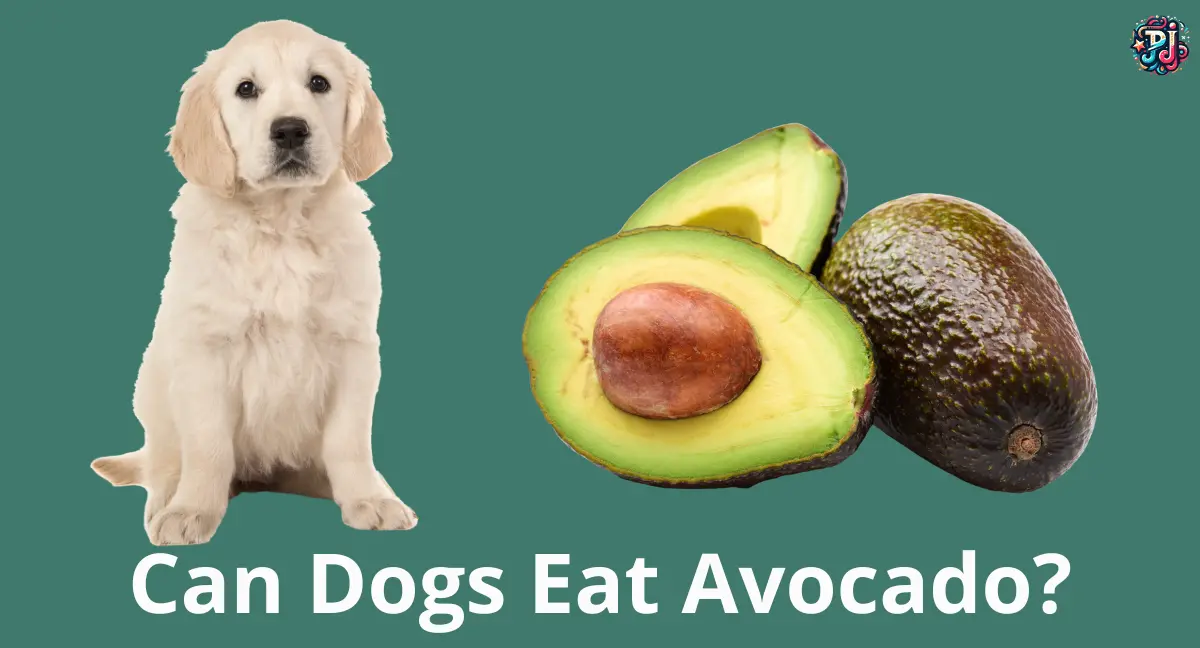When it comes to sharing food with pets, one question that often comes up is whether a dog can eat an avocado?. On the surface, this creamy fruit looks harmless, but hidden inside are risks that every pet owner should know. The plant, its leaves and even the pits contain persin, a substance that can be poisonous for dogs. While the exact amount that becomes lethal isn’t clear, vets often warn that too much could cause vomiting, diarrhea, and even myocardial damage in humans—which is another way of describing a heart attack.
From my own experience, I once had to rush a friend’s pup to the vet after it nibbled on the flesh of an avocado. Even though the dog didn’t eat much, the high fat content led to gastrointestinal upset. In some cases, this kind of reaction can develop into pancreatitis, especially if the consuming continues. Because an avocado is calorie-dense, there’s also the issue of weight gain over time if a pet gets hold of it too often.
Another hidden danger is the stone at the center of the fruit. It doesn’t just carry the risk of being poisonous, but it can also cause a serious choke hazard if swallowed. Knowing this, I always remind pet owners that while we may enjoy avocados in salads or spreads, keeping them out of paw’s reach is the best way to keep our furry friends safe.
Can Dogs Have Avocado?

When I first heard that avocado could be risky for a dog, I was surprised because this fruit is so healthy for humans. The problem lies in persin, a substance found in the leaves, pits and other parts of the plant. While a small amount in the flesh may not be lethal, too much can be poisonous for dogs, leading to vomiting, diarrhea and even gastrointestinal upset. In severe cases, it can cause myocardial damage, which raises the chance of a heart attack. I once cared for a neighbor’s pup who ate a chunk of the stone at the center of the fruit and it almost caused him to choke before we rushed him to the vet.
The flesh itself isn’t free of issues either. Its high fat content makes it calorie-dense and consuming too much can trigger pancreatitis or lead to weight gain in dogs. Even if the flesh seems safe, the risk of a dog swallowing the pits or stone adds another danger, since these parts are hard and tough to pass. From what I’ve seen, even playful nibbling can turn into an emergency visit very quickly.
Unlike humans, who benefit from this fruit, dogs face more harm than good when they eat avocado. The amount that could cause problems varies by the dog’s size and health, but why take that risk? My own experience taught me that it’s always better to keep such foods away. A single mistake with this calorie-dense food could mean a serious health scare and no pet parent wants to face that.
How Much Avocado Can I Give My Dog?
When it comes to sharing avocado with your dog, the safe amount should always stay small. A good measure is about one teaspoon per ten pounds of body weight, which helps lower the risk of health troubles. I once tried this with my own pup and even though he enjoyed the taste, I learned that going beyond this limit can lead to uncomfortable side effects.
If you’d rather skip the guessing, you can swap avocado with other safe human foods. Many dogs enjoy cooked turkey or steamed green beans and they provide nutrients without the same worries. In my experience, these simple options satisfy a dog’s cravings while keeping meals healthy and balanced.
Another choice is to go for store-bought dog treats that include small amounts of avocado. These products are usually blended with lean protein and safe ingredients, making them a more thoughtful snack. I often pick these for my own dog when I want variety without putting his health at risk.
Keeping Avocado Away From Dogs

When I first started bringing avocados into my home, I never thought twice about how curious my dog might be. But over time, I realized the real dangers of a pet accidentally feeding on the wrong human foods. It’s important to educate every member of your household so that all pets stay safe. One trick that worked for me was to print a simple list of safe and unsafe fruits and vegetables and stick it on the fridge. It was a small step, but it reminded everyone what dogs can and can’t eat.
If your dog has a habit of digging into the trash, you’ll need more than reminders—you’ll need a dog-proof garbage can. I learned this after catching my pup trying to rummage through leftovers when I wasn’t looking. Investing in the right container made a huge difference and it gave me peace of mind that nothing harmful would end up in his bowl.
Are Avocados Bad for Dogs?
Many pet owners wonder about the risk of letting their dogs eat avocados. While some point to possible benefits, it’s important to know that avocados are not fully toxic, but they do have the potential to cause serious issues. One common condition linked to avocados is pancreatitis, which comes from too much fat in the diet. When a dog eats even a small amount of avocado pulp, it can develop inflammation in the pancreas, a vital digestive organ. I’ve seen cases where a tiny snack turned nearly fatal, reminding me that what seems inherently healthy for us may cause harm to pets.
Another problem lies in the pit. This hard part of the avocado doesn’t digest in a dog’s intestinal tract and it may lead to an intestinal blockage. The system can’t always process it and the pit might get stuck partway through, creating a painful gastric crisis. If that happens, the only safe treatment is to surgically remove it. I once heard of a playful pup that swallowed a rubber ball, and the vet explained that the pit acts like the same indigestible object. It may become lodged just as a rock or toy would, showing how dangerous it can be when pets aren’t able to chew things down well enough.
On top of that, some dogs face digestive upset from certain compounds in the fruit. While I personally love avocados, I’ve noticed that when a curious dog gets hold of the wrong part, trouble can follow. The mix of high fat, possible blockage, and the chance of a serious health condition makes avocados something I would never freely share. The small snack you offer with good intentions could carry more risk than reward.
Are Avocados Good for Dogs?
From my own experience as a pet owner, I’ve noticed that dogs are often curious about avocados. While it’s important to be cautious, the soft flesh or pulp of this fruit can offer some real benefits. Unlike the pit, leaves, bark or outer skin, which should never be given to pets, the inner part is packed with nutrients that can support your dog’s overall well-being.
The flesh of avocados contains Vitamin C, Vitamin E, Vitamin K and Vitamin B6, along with riboflavin, niacin and folate. These work together to aid many body functions, helping to keep your dog healthy. I’ve personally seen how adding small amounts of avocado to meals can make a difference, giving my dog more energy and supporting better metabolism.
What makes avocados even more special is the presence of Magnesium, potassium and Omega-3 fatty acids. These nutrients boost bone health, protect heart health and even improve the quality of a dog’s coat and skin. Plus, compounds like Lutein and beta carotene play a role in supporting clear eyesight. In moderation, the right part of this fruit can be more than just a treat—it can be part of a balanced approach to keeping your furry friend strong and thriving.
My Dog Ate Too Much Avocado—What Do I Do?

When it comes to dogs and avocado, most owners worry the moment they notice their pet has been eating more than they should. The truth is that eating a lot is actually uncommon, but when it does happen, you need to watch closely. Over the next 24–48 hours, pay attention to signs of distress such as vomiting, diarrhea or abdominal discomfort. I once dealt with this myself when my own dog stole slices from the counter and keeping calm while monitoring him made a big difference.
If you notice even mild signs, don’t wait. Report what happened to your veterinarian, since quick treatment can prevent bigger issues. Some dogs can develop pancreatitis, which may start with small symptoms but become life-threatening over time if ignored. I’ve seen cases where what seemed like simple stomach upset quickly escalated, so acting fast really matters.
There’s another risk if your dog swallows the pit. A blocked throat or choking episode is an emergency and getting to an emergency facility as quickly as possible could save your dog’s life. In my own experience, just knowing where the nearest clinic was gave me peace of mind and helped me respond without delay.
FAQs
Are avocados safe for dogs?
No, avocados are not safe for dogs
Can dogs eat cucumber?
Yes, dogs can eat cucumbers in moderation.
Is yogurt good for dogs?
Yes, a small amount of plain, unsweetened yogurt can be good for dogs
Conclusion About Can Dogs Eat Avocado
Avocados may be healthy for humans, but when it comes to dogs, they’re a tricky choice. While the soft flesh of the fruit in small amounts usually isn’t harmful, the pit, skin and even certain parts of the fruit contain persin, which can be toxic to dogs. Eating too much avocado can also upset your dog’s stomach and cause problems like vomiting, diarrhea or even a choking hazard if the pit is swallowed. Because every dog reacts differently, what’s safe for one pup may not be safe for another. The safest option is to keep avocado out of your dog’s diet and instead offer pet-friendly treats like carrots, apples or blueberries. If your dog ever eats a large amount of avocado or shows signs of illness, call your veterinarian right away. In the end, it’s always better to be cautious and stick to foods you know are safe.

Hi I am Kate Elise and I am the writer about most trending topics. So I hope you will enjoy to read my article.





